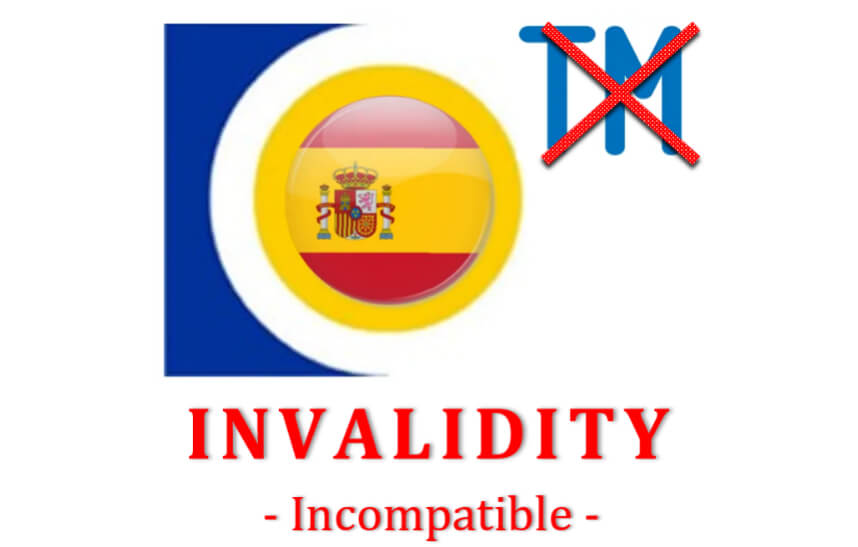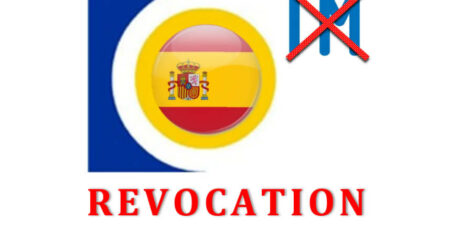INVALIDITY OF REGISTERED TRADEMARKS
Since the entry into force of the amendment to the Trademark Law 17/2001 processed through Royal Decree-Law 23/2018, the Spanish Patent and Trademark Office has been given the capacity to resolve in administrative proceedings some actions by which the invalidity of a previously registered trademark is directly requested.
It enters into force on January 14, 2023, as determined by final provision 7 of the aforementioned Royal Decree-Law, incorporated as Additional Provision One of the aforementioned Trademark Law.
In the past, these proceedings were only within the jurisdiction of the Civil Jurisdiction (Mercantile or Commercial Courts) and, due to their costly and complex processing before the courts, these civil actions were rarely initiated.
This invalidity claim may be filed by any interested party. It is to be expected that many of the trademarks already registered, which have a certain incompatibility with a prior right of third parties, may be subject to this invalidity petition, with the possibility of obtaining another similar trademark once the invalidity has been obtained, and through the administrative process, which is much more affordable, and supposedly more agile.
Before starting the brief analysis on the merits of this issue, it must be made reasonably clear that a trademark is a full right, the limits of which are established by the concurrent prior rights. Therefore, the registration of a trademark does not always imply its absolute validity.
Thus, the processing of a trademark allows whoever feels aggrieved by it to have the right to file an opposition, by substantiating the reasons why it should not be registered.
But, in the event that the earlier mark, or the right that would prevent registration, is not brought before the Trademark Office through the opposition procedure (which also does not exist in all countries, in which case it will not be possible), the mark will be granted.
In these circumstances, an earlier trademark could be damaged by a later trademark, which distinguishes identical or very similar products, and which concur in the market producing effects of perplexity, confusion, association, by erroneously attributing that both come from the same company.
In short, a trademark has full rights when, in addition to being registered, it is fully “valid”. And it is this criterion of validity that illuminates the possibilities of nullity or invalidity.
FULL INVALIDITY RIGHT OF A REGISTERED TRADEMARK
Full invalidity occurs when the owner of the later trademark acts in bad faith. That is to say that, knowing the earlier trademark, he registers the same or a very similar one, with the intention of supplanting it in the market.
A granted trademark is also null and void when it contravenes the absolute grounds for refusal established in the Trademark Law, namely, lack of distinctive character, being formed by generic or descriptive terms, or being customary in the corresponding commercial environment. As an exception, it is possible that it has in fact achieved a distinctive character. In this case it could be consolidated.
As indicated above, the possibility of requesting the invalidity of these trademarks is permanent. It has no expiration date, and can be undertaken by the injured party or interested party, respectively, at the moment in which the presence of the trademark is detected.
The invalidity may be partial or relative if it affects only some of the products and not the entirety of the trademark.
The invalidity of trademarks registered in Spain can be requested from January 14, 2023 before the Spanish Patent and Trademark Office; previously it was only possible before the Courts of Justice, which continue to have exclusive jurisdiction in the case of requesting invalidity by counterclaim, i.e. as a defense to a claim for infringement.
NULLITY OF A REGISTERED TRADEMARK
The Trademark Law defines it as “relative nullity” when it infringes the rights of owners of prior trademarks (without bad faith), which include trade names, extra-registered uses, rights of famous distinctive signs, trade name rights of commercial companies, intellectual and advertising rights, appellations of origin, names of illustrious or famous persons, and similar (non-exhaustive list).
It proceeds when the owner of an earlier trademark incompatible with the later one, requests the cancellation of the trademark before the end of the period of five years from the registration of the trademark to be cancelled.
The invalidity may be partial or relative if it affects only some of the products and not the whole trademark.
The procedure is as described in the last paragraph of the previous title.
THE EXPIRATION FOR TOLERANCE OF THE REGISTRATION OF A TRADEMARK SUBJECT TO INVALIDITY
According to this principle, whoever could act against a trademark right that could affect previously acquired registration rights, may not act against whoever in the period prior to said five years registered a distinctive mark in good faith.
In any case, the invalidity of a registered trademark requires proof of the effective validity of the prior trademark, through proof of use for each of the goods it distinguishes.
In this regard, it is very important to obtain professional advice in all cases for the registration of the trademark, since the rights of a trademark are born by its application, and the deficiencies of that petition cannot be remedied, so that the trademark could be limited in its rights against possible subsequent applications that could only be resolved if what is claimed is obtained, through costly and lengthy legal proceedings.
Should you require further information on this matter, please contact ABECSA and we will clarify and answer any questions or doubts you may have.
Alejandro Sanz-Bermell Martínez
Abogado
Agente de la Propiedad Industrial
Agente de Patentes Europeas
Mandatario acreditado ante la EUIPO









